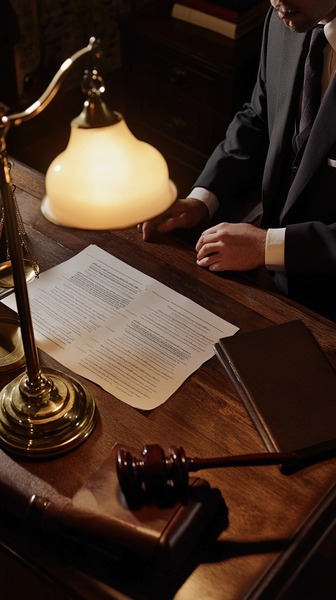
The probate process is an essential legal procedure after someone passes away. It ensures that their assets are distributed according to their will or state laws. This process includes validating the will, appraising the deceased’s assets, paying off debts and taxes, and distributing the remaining estate to the rightful beneficiaries. Understanding the probate process can help individuals navigate this complex system, minimizing potential conflicts among heirs.
Understanding the steps involved in probate can help individuals navigate this complex procedure and ensure the deceased’s wishes are honored.
1. Filing the Will and Petition
The first step in the probate process is to file the deceased person’s will (if one exists) and a petition for probate with the probate court. Often, this is best handled by a Chester County probate lawyer to ensure accuracy and compliance with local regulations. The petition is usually filed by the executor named in the will or an interested party if there is no will. The court will review the will to ensure its validity and determine whether probate is necessary. If the deceased did not leave a will, the court will appoint an administrator to manage the estate according to state intestacy laws.
2. Appointing an Executor or Administrator
Once the petition is filed, the court will officially appoint an executor (if there is a will) or an administrator (if there is no will) to manage the estate. The executor or administrator handles all aspects of the estate, including gathering and managing assets, paying debts, and distributing the remaining assets to beneficiaries. The court may require the executor or administrator to post a bond to ensure they properly perform their duties.
3. Inventorying the Estate
The executor or administrator must compile a detailed inventory of the deceased’s assets, including real estate, personal property, bank accounts, and investments. This inventory is filed with the probate court and provides a comprehensive overview of the estate’s assets. The valuation of these assets is crucial for determining the estate’s total value and ensuring that debts and taxes are appropriately addressed.
4. Notifying Creditors and Paying Debts
Once the inventory is complete, the executor or administrator must notify creditors of the deceased’s passing and allow them to make claims against the estate. This involves publishing a notice in a local newspaper and sending direct notifications to known creditors. The executor or administrator is responsible for reviewing and paying valid claims and settling any outstanding debts and taxes the estate owes.
5. Filing Tax Returns
The executor or administrator must file the deceased’s final income tax return and any necessary estate tax returns. Estate taxes are based on the estate’s total value and may be due before the assets can be distributed. The executor or administrator must ensure that all tax obligations are met and that any applicable tax payments are made from the estate’s assets.
6. Distributing Assets
After all debts, taxes, and expenses have been paid, the executor or administrator can distribute the remaining assets to the beneficiaries according to the terms of the will or state intestacy laws. This step involves transferring property ownership, liquidating assets if necessary, and ensuring each beneficiary receives their entitled share. The distribution process must comply with the instructions outlined in the will or the legal requirements for intestate succession.
7. Finalizing the Probate Process
Once all assets have been distributed, the executor or administrator must provide a final accounting of the estate’s administration to the probate court. This accounting includes a detailed report of all transactions, distributions, and expenditures related to the estate. Often, at this stage, many seek the expertise of probate lawyers in Pennsylvania to ensure accuracy and compliance with state laws. The court will review the accounting and, if everything is in order, formally close the probate case, officially concluding the process.
8. Handling Disputes
Disputes may arise among beneficiaries, creditors, or other interested parties during the probate process. These disputes can involve challenges to the validity of the will, disagreements over asset distribution, or claims against the estate. The executor or administrator may need to address these issues through negotiation, mediation, or litigation, depending on the nature of the dispute and the parties involved.
9. Managing Ongoing Estate Issues
In some cases, the probate process may reveal ongoing estate issues that must be addressed. This can include resolving disputes related to property ownership, handling outstanding claims, or addressing issues with the administration of trusts. The executor or administrator must manage these issues under the court’s instructions and legal requirements.
10. Seeking Legal Assistance
Given the probate process’s complexity, many individuals seek an estate attorney’s assistance to guide them through the procedure. Estate probate lawyers in Bucks County PA can provide valuable advice, ensure all legal requirements are met, and help resolve any issues arising during probate. Their expertise can help streamline the process and reduce potential errors or complications.
Final Thoughts
The probate process is a critical legal procedure that ensures a deceased person’s estate is administered according to their wishes or, if no will exists, in accordance with state laws. From filing the will and petition to distributing assets and handling disputes, each step is essential for adequately managing the estate. Understanding the probate process and seeking professional assistance when needed can help ensure that the estate is resolved efficiently and per the law.






